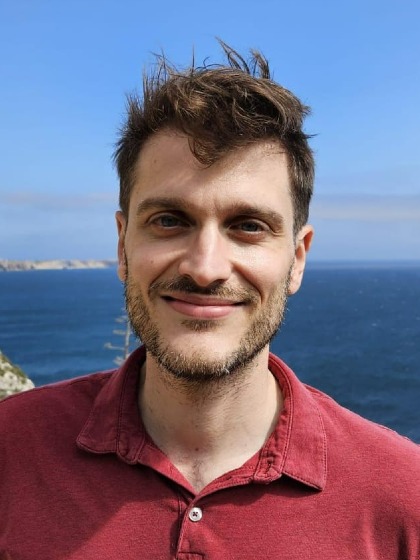A. (Alberto) Godioli, PhD

Humour in Court (ForHum)
NWO Vidi Grant, 2022-2027
Team Members: Alberto Godioli (PI), Jennifer Young, Matteo Brando Fiori, Melissa Luypaers
Project Description:
Negotiating the legal boundaries of free speech is a crucial challenge for democracy – especially in the digital age, as controversial material can easily gain pervasive circulation across different contexts. Achieving a fair and consistent treatment of humorous expression is essential in this respect, as recently exemplified by several high-profile legal cases. Within liberal-democratic contexts, humour is typically deemed unlawful only when it is considered to cause objective harm, as opposed to merely subjective offence. However, drawing a line between (illegal) harm and (legal) offence might prove particularly difficult in practice, as humour’s elusiveness and subjectivity complicates the task of assessing the meaning of a controversial joke, meme or cartoon.
Even within comparable judicial systems, the handling of humour in free speech jurisprudence is often inconsistent, with courts lacking a shared framework to reconstruct the meaning of a given joke (hermeneutic level) and discuss alternative interpretations of the same joke (metahermeneutic level). To tackle this problem, this project establishes Forensic Humour Analysis as a new line of interdisciplinary research, based on an unprecedented dialogue between humour studies and the law. Literary-theoretical and linguistic approaches to humour are assigned a central role in the project, due to their special focus on (meta)hermeneutic aspects.
The following research questions will be addressed: RQ1) What are the (meta)hermeneutic criteria used by judges dealing with humour, and in what ways are they inconsistent? RQ2) How can these criteria be made more consistent? RQ1 will be tackled through an innovative software-assisted exploration of humour-related case law. RQ2 will be handled through a metahermeneutic analysis of the texts discussed in the selected cases, based on insights from literary theory and humour studies. While focusing on Europe, the project’s findings will be highly transferable. In dialogue with legal professionals and free speech associations, the project will ultimately generate a hands-on protocol for interpreting humour in court, thus paving the way for concrete improvements in judicial practice.
Please click here and sign up for the newsletter for updates on the project
Cartoons in Court
NETIAS Constructive Advanced Thinking Grant, 2020-2025
Main host: IAS CEU Budapest
Team members: Alberto Godioli (RUG, Principal Investigator), Vicky Breemen (Utrecht University), Andrew Bricker (Ghent University), Ana Pedrazzini (Conicet – Comahue National University), Tjeerd Royaards (Cartoon Movement)
Project Description:
Due to its inherent ambiguity and elusiveness, humor can make it particularly difficult to draw a line between lawful and unlawful expression. This is particularly evident in the case of cartoons or other comparable forms of predominantly visual humor (such as memes), whose high degree of implicitness and condensation generates specific interpretive challenges.
Courts of law still lack a consistent approach to questions such as the following: How can judges deal with the ambiguity of visual humor, i.e. the fact that the same cartoon or meme can be interpreted in different ways by different people? And to what extent can the author/cartoonist be considered responsible for different (reasonable) interpretations?
The ‘Cartoons in Court’ team aims to tackle these questions by working organically on the following interconnected strands: 1) Discussion of case law regarding controversial cartoons; 2) Corpus-assisted analysis of ambiguity in cartoons; 3) Historical perspective on cartoon controversies; 4) Interviews with cartoonists and legal professionals. Throughout the project, the research team will work in close collaboration with stakeholders such as Cartoonists Rights, Cartooning for Peace and other free speech organizations.
PhD Supervision (as promotor or daily supervisor)
David Beynon, 'Haunted Futures: Temporal Dissonance and Potentiality in Climate Change Fiction.' University of Groningen, 2025 - ongoing. Promotor.
Lilit Khandakaryan, 'Visual Resistances: Altering (Post)Soviet Memory in the Photographic and Comic Art of Young Armenian Artists.' University of Groningen. 2024 - ongoing. Promotor.
Marina Grisko, 'Remembering Soviet Infrastructures in Eastern Europe: Visual Poetics and Politics.' University of Groningen. 2024 - ongoing. Promotor.
Melissa Luypaers, 'Parody and the Law: Comparative Perspectives Across Disciplines.' NWO PhD project. 2022 - ongoing. Promotor.
Beer Prakken, 'Not just a joke. On humour, polarisation, and responsibility.' University of Groningen, Interfaculty PhD. 2022 - ongoing. Promotor.
Alessandro De Laurentiis, 'Character, inner life and the tragic in Tozzi’s and Pirandello’s short stories.' Sandwich PhD University of Pisa / University of Groningen. 2022 - ongoing. Daily supervisor.
Santi Luca Famà, Other Forms: A Neo-Formalist Analysis of Nonhumanity in Italian Modernism. Stockholm University, 2020 - ongoing. External supervisor.
Juan Gallego Benot, 'Rhetorical invention in the Reformation and Counter-Reformation.' Sandwich PhD Autonomous University of Madrid / University of Groningen, 2020 - ongoing. Daily supervisor.
Leonardo Arriagada, CG-art: An aesthetic discussion of the relationship between artistic creativity and computation. University of Groningen, 2020 - 2023. Daily supervisor.
Judith Jansma, From Submission to Soumission: Populist Perspectives on Culture. University of Groningen, 2017-2021. Daily supervisor.
Maria Carmela D’Angelo, L'italiano dello sport: prospettive glottodidattiche e pratiche interculturali. University of Groningen, 2015-2019. Daily supervisor.
| Laatst gewijzigd: | 07 april 2025 10:48 |
